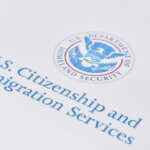As of June 8, 2016; Filipino World War II Veteran’s family members now have the opportunity to receive a discretionary grant of parole if they are beneficiaries of approved family-based immigrant visa petitions. The discretionary grant of parole is given so that immigrants may enter the United States while they are waiting to receive their immigrant visa. The United State Citizenship and Immigration Services (USCIS) will review each application on a case-by-case basis now that the program is in effect. This new program comes from the Immigration and Nationality Act which gives the Secretary of Homeland Security the authority to grant parole to individuals that meet specific criteria.
The primary reason for the Filipino World War II Veterans Parole Program (FWVP Program) is to let family members of Filipino World War II veterans come to the United States and care for their elderly family members as they wait for their visas to be issued to them. This program is a solution to the amount of visas issued per country which can cause Filipino-American families, who are not an immediate relative of the veteran, to wait long periods of time before being able to enter the United States to assist veterans and/or their spouses that have sacrificed so much to serve their country. There have been cases in which this problem has caused family members to wait two decades to join the petitioning U.S. citizen, or permanent resident, which is an unacceptable timeline for families trying to assist their elderly.
In addition to applying for this parole through a petitioning party, a member of a Filipino World War II Veteran’s family may apply for parole on their own behalf. This is done when the veteran and their spouse are both deceased and the family member presents a need for the parole due to urgent humanitarian reasons, or significant public benefit. Due to these guidelines, this process is limited and granted on a case-by-case basis.
An individual seeking to be granted this parole will have their case reviewed initially by USCIS and then reviewed by U.S. Customs and Border Protection when the individual arrives at the U.S. port of entry. The USCIS review is conducted to decide if granting the parole is appropriate while U.S. Customs and Border Protection makes the decision to parole during their review of each application.
If you are considering applying for the FWVP Program, it is strongly recommended that you research the process to gain a better understanding of how to correctly file the application. The USCIS website contains information about the FWVP Program including eligibility requirements in the I-131 form which will instruct you how to apply for parole. This process can be complicated and will require a level of attention to detail. Due to these reasons, I urge anyone that is considering to apply for the FWVP Program to seek the assistance of an experienced immigration attorney to process the application quickly and correctly.






